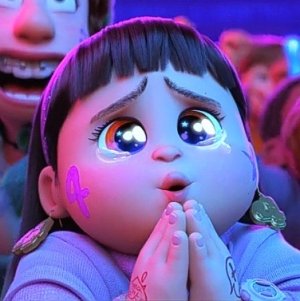
Of course, it's seen in the two main characters, Kim Jung Yeon and Kim Seong Geun. Both of whom are also escaping two different things. While male Kim's is more evident, female Kim's is not explicitly told. But that's fine. A hikikomori's reason for shutting himself/herself in has a very long list of reasons and perhaps even the hikikomoris themselves do not know the definitive one. But one thing is clear: escape and withdrawal.
We see how both characters try to live as normally as they can. Male Kim adjusts to the island life in just three months and with only a scarecrow as his companion (a symbol of his old self), he looks more lively than he did 5 months ago. Female Kim lives virtually, by having a virtual identity, she feels "connected" with the world and tries to live normally by doing normal things like as she said, go to "work" and exercise.
Here, we see how human connection tries to render boundaries useless. They break down the walls we have build once we have reach an understanding and to these two is began with the noodles. The noodles becomes a symbol of hope for the two lonely characters. And eventually, it's also each other that in the end, they long to see.
As cheesy and sentimental as this sounds, Castaway wants to show the light at the end of the tunnel. That through hardships, we can retreat to our own worlds but eventually, we will emerge, good as new. It's not a dead end.
Was this review helpful to you?
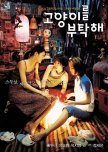
Each with defining personalities of their own also come to find their own places.
Yoo Tae-Hee (Doona Bae) is the peacemaker, I'm-not-ready-for-reality so she works for free at her family's business. But she longs for companionship and for connection, which she tries to find with from a poet with cerebral palsy whom she volunteers as a typist for.
Shin Hae-Joo is working as an office lady but without a proper degree. She seems to be dating but isn't really. A little bit full of herself, Hae-Joo longs to climb the social ladder; thus, settles for what she's thrown at.
The outcast, Seo Ji-Young is an orphan, living in a squatter with her grandparents and studying textiles—she longs for escape, to study in another country.
The cat, like these three girls, are adapting to changes—from being passed from owner to owner. Once a stray cat, it in a way, shows how they too, want to find their place somewhere.
Ultimately, the one who ends up taking care of the cat are the ones who have already found their place long before.
Take Care of My Cat is a subtle coming-of-age. It doesn't try to exaggerate nor does it try to be overly dramatic at its subject matter. There are times when it does hit the heartstrings but at times, it stays true to what it chooses to portray. If any, it's straightforward without being overly sentimental.
Was this review helpful to you?
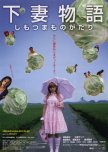
Set in a small, rural town that's bounded by closeness where every thing you need is right there (Jusco in this case) and every one probably knows each other. This setting represents the reality for the two leads. A reality that they wish reject.
Momoko rejects through her love for lolita fashion. It represents a fantasy world—a means of escape. Ichiko (real name Ichigo) rejects this through being a yanki and a member of a biker gang. It represents a different identity, even changing her name from strawberry (Ichigo) to another one as she hates it—a rejection, a means of escape. This all shows a desertion. An exile in to their own worlds by two different, almost outcast young girls.
Living in a tightly knotted community, being different sticks out. And they certainly do. But they don't like that. This unity and conformity does not approve of their different-ness. And it's this different-ness that actually brings them together.
Momoko, who sees herself as always being calm even seeing animals die, has found happiness in seeing her friend happy. She tells her friend: If it makes you happy, take it. A yanki, belonging in a gang rejects conformity and chooses to live for herself.
In a way, the comedic aspects and sometimes random parts of the film is a mockery of their reality, the one they choose to reject. It acts, in a way, the fantasy world they choose to escape to—just like Himiko and her legend, just like Roccoco.
In their wishes to escape to their own world, they give up having friends (in school/in their gang), a partner (romantically) but this desire for escape brings them instead, to each other.
Was this review helpful to you?
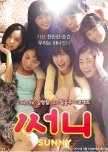
In the way, the film explores the power of friendship in the most non-dramatic way possible but still tries its best to be sentimental (in a good way) and to be connected.
The flashbacks are incorporated so well with the present that it moves the narrative along in such a smooth way. Even the way the past contrasts with the present fall into place so perfectly. There is so much anticipation to get to know each character, to explore them and to love them. Just when you think you know how they'd turn out—you're in for a surprise.
There is comedy, there is drama, there is dancing and singing and even a tadbit of romance. In a way, the Sunny gang brings you into their world and immerse you in it. Their differences, their style, their talking, their singing and their dancing—they want you to experience it too. So screw the world, these girls create their own sub-culture and not confirming to the reality by simply—being them. And of course, their friendship is a mirror of female bonding.
Was this review helpful to you?
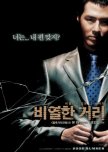
A Dirty Carnival has elements of competition, survival and trust.
In the game of survival, competition is tough and you cannot trust anyone.
That's Carnival's message.
When push comes to shove, people are pitted to confront their inner darkness—which eventually eats them up and destroys them.
In a way, Carnival explores this deterioration through Kim Byung-do's (wonderfully played by Jo In-Sung) life as a low-ranking gangster.
The dynamics of friendship, family and love for someone like him, in that profession is explored mirroring who those deemed "deviant" by society go through.
A family you have to support but is also a weakness to your job, a long-time crush who fears you because of your job and a friendship you want to trust...but for a job like this, can you really?
Carnival does well in showing parallels of the old and the new—that perhaps, human desire is eventually just never similar. Especially in this profession.
A realistic ending. Brutal fight scenes (I find myself looking away sometimes) and a heartfelt story.
Was this review helpful to you?
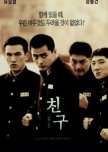
Yet another example of how school, family and society shapes a person. How these kids get hit and slapped when they do something wrong as a punish, how parents are blamed for these actions and how they fall in society's pitfalls because of the life they're born in to and how they're forced to live it.
"If we went to the same middle school, I would have been in the right direction.
Competition is prevalent is a place where you have to be the best—to survive. And because of that, relationships are sacrificed.
While friendship is an overarching theme, Friend doesn't start with melodrama.
The greatest act of friendship is probably punishing yourself out of the shame and humiliation because you cannot save your friend even if you have the power.
Friend doesn't try too hard. It's straightforward, it's simple and it gets what it wants to across. Perhaps, it just drags on too much where the later part (when they have grown up) feels lopsided compared to when they were younger. Ultimately, that suffers. But the power is in portraying its characters.
Was this review helpful to you?
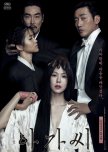
Were they met?
Yes and no.
I don't know what I exactly expected to see. Maybe I was looking for something ala-Oldboy (2003), his best work to date and something better than Stoker (I didn't quite like it). But instead, I got something different. I just don't know if it's better or worst (than Oldboy but better than Stoker).
I find myself very enthralled with the production the most.
Park proves his mastery when it comes to making feels look beautiful and meaningful, and to me, his handling of build-up and then exploding them all at once is done so gracefully, so smoothly, so satisfying.
The Handmaiden is visually beautiful on all levels. Based (or inspired) by Sarah Waters' The Fingersmith, Park shifts the setting to 1930s colonial Korea. Just like Stoker, The Handmaiden is eerie, full of suspense and has a sexual, erotic tone—which clearly represents his film.
Broken into three parts, Park knows what cards to keep and when to reveal them—leaving room for a grand voila. The Handmaiden, itself, it not complicated nor does the plot try to be mysterious but its Park's touches that makes it sexually mysterious and ultimately full of taunting and teasing.
Colors emit a gothic vibe, the cinematography is superb, the score embraces the atmosphere and the characters are showered with undeniable tension from start to finish.
Ultimately, Park triumphs at showing female sexual satisfaction without the need of men. It's liberating as much as it's satisfying—an exploration, or explosion rather, of the female characters' undiscovered desires.
Was this review helpful to you?

Maybe those are clouded my judgement.
But I admit, Master is not a perfect film. It certainly helps if you love the actors you are seeing on screen.
Cold Eyes (2013) director, Ui-seok Jo makes the style of Master, a reminiscent of his 2013 hit. Fast-paced, suspense and action-filled. I did enjoy Master a little bit more though, I felt like it has more substance, however questionable it may be.
Lee Byung Hun plays the bad guy (not a first), the CEO of a big company, One Network who is scamming their customers and is involved in fraud cases among others. Kim Woo Bin plays the section chief of communications/technology, a tech-whiz of some sort and Kang Dong Won plays the head of the investigating team. The three have good chemistry—each a talented actor on their own.
No doubt Lee has an actor. My first time to see Kang (and quiet guy during the premiere as well) and crime/action films are not new to him. Kim, this is probably his best role (for me) to date. Though, better characterization would work—given that we have 3 contrasting characters. But I think Ui suffers from that problem regardless.
Kudos though for showing us two badass female characters, played by Uhm Ji-won and Jin Kyung, though they deserve more screen time. And justice for Jin's character.
Master is messy. It starts strong—intriguing even, leading us on, much like Cold Eyes' exposition. But ultimately, things start to get a little bit out-of-place. There is little backbone or sense in how things escalated. They either seem ridiculous or just not how it's supposed to go.
Ui tries to back it up with comic relief which Kim does well and contrasts with Kang's serious demeanour. Lee does it well too.
Yu Eok does well with the cinematography, contrasting Seoul's tall buildings to the Philippines' tropical and cramped houses. Though as a Filipino, it's still a bit disappointing that Tondo (one of the largest squatter areas and poorest is the one chosen to showcase including the poor environment and such, there is so much more to show than that but okay).
Action-wise, it's more intense than Cold Eyes but the latter has better suspense and build-up though the former tried to throw a plot twist that seems wow at first but ridiculous the next...due to the lack of a backbone.
It's not the "exotic" place that would save Master. It's the cast. It's the reason that, despite all its flaws, that I ultimately still enjoyed this.
Was this review helpful to you?

Shadows has an amazing line up: Sang Kang-ho (Memories of Murder, Thirst), Gong Yoo (Train to Busan, A Man and a Woman) and cameo appearance from Lee Byung-hun (A Bittersweet Life, Inside Men) whom Kim has worked previously and Um Tae-Goo (Coin Locker Girl, Veteran).
Pulled at the edge of your seat from start to finish, Kim doesn't disappoint tossing action sequences and twists that he carefully crafts and builds in suspense, only to laid them out with the greatest satisfaction, it leaves you hungry for more.
Just like "I Saw the Devil" and "A Bittersweet Life", Kim starts Shadows with little-to-nothing description of what's going out, only to follow it up with an action-filled chase scene, an amputated toe nail and blood splashed across the wall.
Shadows' 30 minutes train sequence is one of the best I've ever seen. This is the juice. It builds the plot as much as it shapes it and moves it, that includes the characters too. Accompanied by a more menacing version of Ravel's Bolero, the adrenaline just doesn't stop. I, for one, had to pause the film just so I could breathe. Kim brings us from compartment to compartment from character to character from discoveries to discoveries.
Cinematographer Kim Ji-Young does a fine job of transporting us to a 1920s setting of South Korea and Shanghai (the accuracy may be question but it looks beautiful nonetheless) with retro-like colors and saturated tones. Kim ravishes in extremism at times, with loud shoot outs, dialogues delivered in sinister whispers, loud slapping sounds, to torture scenes that likens to his other film, "I Saw the Devil".
Kim channels his narrative into powerful loyalty that seems like The Age of Shadows take a patriotic approach but ultimately, this thrill-filled film is entertaining as much as it is greatly crafted.
Was this review helpful to you?
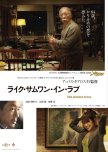
But "Like Someone in Love" opens powerfully. Perhaps it will leave you confused but it already reinforces what we need to know. There is a woman speaking but we do not know who she is. That goes for more about a minute or two. And when we are finally shown who she is, she, alone is in the frame—almost like she's trapped.
And throughout the film, that's what we're shown. A trapped Akiko.
About 20 minutes in, I was already sobbing.
Akiko trapped in the taxi, with neon lights flashing through her face, some reflected on the window, makes her seem like she is lost—discovering the world outside for the first time, wandering through flashy lights and busy streets, trapped while listening to voice messages left by her grandmother who longs to meet her.
And that's what made me start shedding tears. The grandma's messages. The voice. The calmness. But at the same time, the longing to meet her granddaughter. And when the taxi finally puts the grandmother in view, waiting next to a statue, the camera choses to push us away, never showing her in close-up. Akiko, arches her head, asks the driver to turn one more, getting as much as she can. And drives away.
I am helpless as she was. I wanted to do something. As Akiko arches her head, she is filled with struggle, wanting to escape the taxi, acting like her prison but she knows she can't. And drives on.
It made me angry though, how much we take for granted the people that love us and care for us, who despite their age, wait for us, travelled to Tokyo, made an effort to call us, only for us, to leave and give up. Only when we lose these people do we realize the importance of that. That scene is powerful in the movie but it is also powerful for me—having lost my own grandma only a year ago. It resonated so much, it felt me in tears.
"I'll be waiting," her grandma says.
At least she has a grandma waiting for her. And she took it for grandma. (This is me being sentimental, sorry.)
The car will then become a symbol of Akiko's prison. Later, she sits inside Takeshi's Volvo. As I said, I'm not familiar with Kiarostami's works but he seems to focus a lot on identity, lies and deceit. And truth be told, he does it subtly here, almost nestled in so smoothly, you won't be able to say the film focuses on that.
Akiko is deceiving her jealously boyfriend and her grandma about her profession as a callgirl. Takeshi, the old man that she meets at night, pretends to be her grandfather the next day. Her jealous boyfriend says he is ready for marriage but seems not to be.
These little things are hidden so well in the dialogues. The film also focuses on close-up as a means to show the characters' lies and deceit. Cleverly done through the lack of an actual score as well, it makes you feel like a real observer—only you are helpless to do anything.
1hr45 minutes feel short. And the ending is abrupt, almost unfinished and lacking but ultimately, "Like Someone in Love" succeeds in delivering what it needs to. Perhaps its slow past is difficult to get through (it was for me), it's a beautiful film but a film that's also difficult to recommend.
Was this review helpful to you?
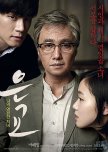
Maybe that sounds worse than a 70-year-old lusting over a 17-year-old but I say that Eungyo (or A Muse) is more daring because the scenes are more graphic and explicit, it almost seems like 10 minutes of soft porn. And given that Nikaido (only 20 then and didn't do a whole frontal nude) had prior acting experience, Kim Go-Eun did not (only 21 then, did a whole frontal nude).
I go with the comparisons given the lolita approach and the young age of the actresses and their characters. My Man had straight up skinship and intimate, sexual scenes but definitely not as graphic or explicit as Eungyo. Hence, still a sense of reservation even if the two leads are actually in love with each other.
Eungyo is daring. While the main focus might go to its controversial subject and explicitly, to me, the film is ultimately about loneliness. That is not saying that it normalizes pedophilia or whatsoever. The film is not meant to answer that. You, as viewers, can decide that on your own.
While My Man is filled with similar themes, it tries to make you feel colder towards its characters, added by the fact that it was filmed in Hokkaido.
But Eungyo. Eungyo warms you up. Eungyo is like a confluence. On one hand, there is warmth. There is purity. There is longing. On the other hand, there is disgust. There is the swelling in your stomach like you want to throw up. Then they meet and clash and you feel a little bit of both.
Jung Ji-woo establishes Lee Jeok-yo's played by Park Hae II (who is actually in his late 30s) loneliness very early in the film. The opening sequence of his house, of a portrait of him when he was young, of him in his office, of his rice cooker, of him eating alone, of him falling asleep in the chair of his study all say one thing about him: he is old and alone and lonely.
On the other hand, 17-year-old Eungyo has an abusive mother. She, too, as she confesses later on, is lonely, despite her energetic and lucid nature.
Jeok-yo's semi-assistant, semi-protege, Seo Ji Woo (played by Kim Mu Yeol) is an engineering major who respects, admires and looks up to his mentor and only longs for his recognition, which to his demise, does not really get. He wants to write but has no talent. He lives in an apartment by himself and has become a mask of his mentor. He, too, is lonely.
Thus, I see Eungyo more as a film about loneliness.
Filled with beautiful cinematography, heart-warming soundtrack and poetic narration, it's difficult not to appreciate it despite its controversial subject matter. Even Jeok-yo's very sexual dreams are shot beautifully in bright colors, nostalgic tone and over a pile of books, you too, are suck into this seduction.
Just like her character, Eungyo, Go-Eun shines. This being her debut role, only acting previously in school dramas, she is the sunshine of this film. Playing an innocent, flirty but to an extent, seductive Eungyo is no joke for a 21-year-old with no film experience.
She captures the emotions, the movement and the smile (oh gosh, the smile) that Eungyo embodies. She plays an enhancing and an irritating lolita. Eungyo is a character that longs affection and to me, sees Jeok-yo more as a father figure (probably even a case of Electra Complex) more than a lover.
Eungyo started off well. But the second half, almost as it reaches its end, it becomes a more revenge-driven cliche story than what it first intended to be.
That sad, the ending monologue between the main characters is powerful.
I wished they have chosen an older actor to play a 70-year-old character than put Hae II in heavy make-up. Maybe that very idea sickens them that they couldn't do it too. Nevertheless, Hae II played his character, twice his age well, even spending hours to observe the eldery prior to his role. The way he moves, walks and even talks are convincing but it's being covered in make-up that doesn't.
Was this review helpful to you?
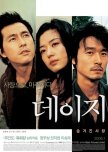
What drew me to watch "Daisy" is 3 things: Jun Ji-Hyun (also known as Gianna Jun), the intriguing plot and the title, having a friend named the same.
The plot is very drama-worthy and for some reason, its 110 minutes running time felt very short and unbalanced. At times, there is a voice-over by Hyun, at times by either of the two male leads. I didn't really like this approach because it's telling more than showing.
Set in Amsterdam, the setting is very beautiful. With shots from the city, from the countryside and from indoors. What I do admire about "Daisy" is its simplicity. The narrative is certainly simple and easy to follow.
But the way it's edited is overdramatic especially in scenes that don't require it. Over use of fades out may be refreshing but it just doesn't work. And that awkward fade-to-black as if to create dramatic suspense also doesn't work.
That said, the soundtrack is beautiful. The acting was great. It felt very sentimental and I think the cast pushed through. I enjoyed watching but it felt to really tug at you, which for a story like this, would have done well.
Was this review helpful to you?
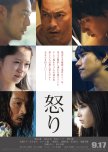
With a talented and star-studded ensemble of some of Japan's most famous names, it's no surprise that Rage shines. Ken Watanabe needs no introductions, the male leads: Go Ayano, Matsuyama Kenichi, Tsumabuki Satoshi and Moriyama Mirai who all have already made names for themselves. Aoi Miyazaki, who's been in the industry since she was four. And the up and coming, Hirose Suzu. I also want to mention the relatively unknown Takara Sakumoto who makes his debut here as an actor to watch out for.
I'll tell you why Rage is a very raw film -- it depicts Japanese rigidity. I don't say that to provide a negative interpretation but there is a lot of suppressed emotions in the society. Hence, these suppressed emotions are bottled up, be it sadness, be it anger, be it loneliness—whichever. The need for catharsis is just too high and I think Rage perfectly depicted that need and gave these characters that chance.
As I watch this film, I too, want to scream, I too want to have a tantrum, I too, want to throw things—I want to release bottled-up feelings. Lee knows how to build-up these emotions that echoes the characters' as much as he builds up the narrative. He knows how to give you the "feels" combined with Ryuichi Sakamoto's score that's just filled with too much dramatic tension, you too, would want to explode.
There are two overlaying narratives in the film, all of which were very cleverly linked not only by the murder and that the three men emerge as potential suspects but are also connected through dialogue, through visuals and through sound. The sound is really the one, to me, pushes the plot. The sounds emit the emotions, emit the passion and emit everything. Lee connects visuals from Tokyo, from Chiba and from Okinawa together with the dialogues and the sound. I think it's a very refreshing way to do so and it makes the three narrative feel balanced.
These narratives, on their own are unique but still keeps the underlying theme of trust and connection. Go and Satoshi's narrative touches on their sexuality. It is very refreshing to see an aloof, almost-silent Go that contrasts with Satoshi's fearless and enthusiastic nature. Miyazaki, Watanabe and Kenichi's narrative touches on acceptance and of family. The lonely, almost weird Kenichi forms a connection with Miyazaki, who has just been rescued by Watanabe (her father) from an abusive sex work. Suzu, Mirai and Sakumoto brings us to Okinawa, of a simpler life, of youth and of curiosity but to me is really the one that resonated with me the most.
If you really want to know who the murderer is, I'd say look at the narrative that's filled with the most rage. Look at which narrative makes you feel the angriest, the one that filled you most with rage and you will have your answer. By the second hour of the film, where it's filled with tears and screaming and throwing, you'd know. The reveal isn't what matters, it's their stories that do. Lee knows how to juggle the three narratives that three of the suspects are all likely to be the killer.
The plot does, disintegrates into a cornucopia of crying, weeping, wailing and just a lot of those (all three narratives stitched together too) so it does overwhelm and to itself, an overexcess portrayal of the characters and their narratives. But nevertheless, very very very impressive performances from the cast.
All I have to critique is probably the lack of a backbone for the killer himself. There is an ongoing question of where the rage comes from. Is it simply from surpassed emotions? Is it simply from being laughed at his pitiful state? Or is it from being pitied? We are never given a straight answer so we can only interpret.
The visuals are stunning. The opening shot of a bird's eye view of Tokyo, to the clear waters of Okinawa to the colorful houses of Chiba—it's beautiful. The visuals are great transitions and there is never the lack of varying colors to depict the scene's mood.
Finally, I just want to say that I will never look at Hirose Suzu the same again. I'm only commenting on her the most because her films are the one I've seen the most. I used to say how Suzu knows how to act, she can cry but there is blankness in it (compared to the way Fumi Nikaido tries) but seeing her, in a very very very mature role, I'm taking back what I said—Suzu deserves all the spotlight she's getting. And with such roles, it's no doubt, she can do more.
Also, Takara Sakumoto making his debut here impresses.
Ultimately, the film is about trust and connection. No, it doesn't tell you who to trust and stuff but it does tell you how it feels when someone you trusts betrays you or someone you choose not to trust just decides to leave.
Was this review helpful to you?
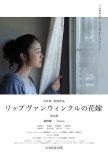
Iwai explores loneliness, longing, companionship, destruction and construction of Japanese family, the rigid nature of Japanese society in the modern age. This makes Bride both a affirmation and subversion of Iwai's earlier films that I've watched like Love Letter, All About Lily Chou Chou and Hana and Alice. If those films reflects nostalgia, Bride seeks to redefine how the age of technology may bring people closer but also further and how this creates and define human connection.
Bride still incorporates Iwai signatures like sun flares, soulful montage, instrumental music and bringing in small scenes to bigger ones. Yet, Bride stands as its own. It's not as romantic as Love Letter of Hana and Alice nor as the coming-of-age of All About Lily Chou Chou. Despite a 12-year hiatus, Iwai doesn't lose his touch. He is still a very lyrical storytelling in a 3-hour emotional tale driven by an impressive cast, beautiful cinematography and heart whelming music.
When it comes to cinematography, Iwai's films are on the top of list. But of course, the credit goes to the film's cinematographer, Chiga Kanbe. What I love about Bride is how Iwai (and Kanbe) tells some much with its visuals and music that doesn't overpower each other even if sometimes, the dialogue is barely heard. The music by Mako Kuwabara embraces its stunning visuals. The overall tone is filled with sheer melancholy reflected with the littered cold colors, we too, are plunged in Kuroki's trauma paired with unstable camera angles showing a distorted vision.
Iwai knows how to tug at your heartstrings. He knows how to many silent shots mean so much more later. And finally, he knows how to build up drama and tension. It's 3 hours long (shorter in other countries) but the tension never subsides and the reveal particularly of Ayano Go and Cocco particularly laid down every detail shown prior to it. It makes the execution so satisfying. Yes, 3 hours is very long. Overly long and the film could've been shorter but very scene counts. Every scene matters. Though they seem random, they're not. That's how I felt watching this.
The cast, led by Hana Kuroki has amazing chemistry together and each of their characters contrast one another that brings out the personalities more. It's not a lopsided portrayal despite Mashiro (Cocco)'s later appearance in the second half. These characters aren't stock or just for display, they are there for a reason and their characters are explored.
Kuroki plays Nanami, a timid doe-eyed wallflower. Kuroki embodies a certain innocence that makes Nanami's somewhat bittersweet ending...worthwhile. She shines, in a subtle, very modest way but she shines. Though I would say Go is my favorite. He just has this charisma that pushes its way through. Playing a jack-of-all-trades, part Mephistopheles, he has done it with such clarity. Cocco is the light of the film (as ironic has that sounds given her character's fate) because of how vibrant and how lively she is compared to Kuroki's character.
Iwai doesn't sugarcoat these characters. He establishes them as such and moves on as much, making their emotions and experiences so much more connective with the viewer. He shows Nanami as awkward and docile by her experiences in school, having no relatives to invite at her wedding and eventually her own marriage.
Kuroki and Go stared in Flower of Shanidar (2013) which explains their good chemistry. But Kuroki and Cocco also share this same chemistry particularly because they're opposites of each other which really brings out their own respective personalities. Perhaps their bond is more than sisterly, maybe even erotic but I see it as more platonic bond of two lonely women, trying to find comfort in a directionless world.
Very much like Rip Van Winkle, these two women wake up in a world that breaks away from their past and try to make the most out of it...to be happy.
Bride also stands out because of how symbolic things are and how metaphorical it is. There is a scene where Kuroki approaches Go, some might see as romantic but Go's lines are metaphorical which relates back to the reveal of both his and Cocca's character. Seeing how Iwai reverts that and how Iwai chooses dialogue as a vital component in storytelling.
Finally, I want to say that there is so much suppressed emotions in this film which perhaps echoes the rigidity of Japanese social mores. Cocca's occupation is a very clever and important choice that relates to that. Not going to mention here explicitly but her job embodies the freedom and rejects this rigidity. Overall, it ties back to what the films show. Leaving yourself bare and exposed is a more intimate emotion where throughout the film, you suffocate by how much people are keeping and how fake they can be especially in this digital age.
Was this review helpful to you?
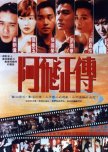
If I've said that In The Mood for Love will make you feel exactly just that and 2046 would make you in the mood for heartbreaks then Days of Being Wild will give you the mood to be just that—wild.
Days of Being Wild is only Kar-wai's second film and it both shows his infancy but also how he shaped his identity as a director as well as his characters, some of which have regularly appeared throughout the Informal Trilogy.
Leslie Cheung plays the young and charismatic but emotionally unstable, York who is a womanizer. Cheung, whom I have seen in Happy Together with Tony Leung is really a charismatic character. He embodies a sexiness that's untamed and draws you in as a viewer. It's no wonder that two of his flames are so madly in love with him. Much like in his character in said film, Cheung here is also on the verge of self-destruction further heightened by his familial identity.
But Kar-wai doesn't just focus on Cheung. He also gives us Maggie Cheung's Su Li Shen, Carina Lau's Mimi and to an extent, Andy Lau's Tide perspectives—all of whom are grappled with their own frustrations that ultimately involves York. It's York's own biological identity that shapes his relationship with women and eventually, how he lives. He is damaged but it is not romanticized. Kar-wai isn't a pessimist, he is just showing rawness.
Kar-wai traits also plague the screen: cramped spaces that seem to emit suffocation, unusual angles highlighting the characters and their interactions, dark and damp and nostalgic setting—all embody Kar-wai's consistency as a director and how his filmmaking drives his story as much as character even if it's lack of a strong plot.
There is so much tension in this film, so much dramatic build-up and so much longing. How much does Li Shen long for York? How much does Mimi long for York? How much does York long for his mother? How much does Tide long for Li Shen? Each minute is made with beauty, each glimpse, each touch feels like it's consuming you. Just like Li Shen and York's memorable 1 minute, Days of Being Wild has been another memorable beauty of a film.
This film, itself, is about identity. Who is York to his biological parents? Who is Li Shen without York? Who is Mimi when she is not Mimi? Who is Tide as a sailor? Every fleeting seconds matter in discovering who we are and how each person in our life shape us.
Was this review helpful to you?

